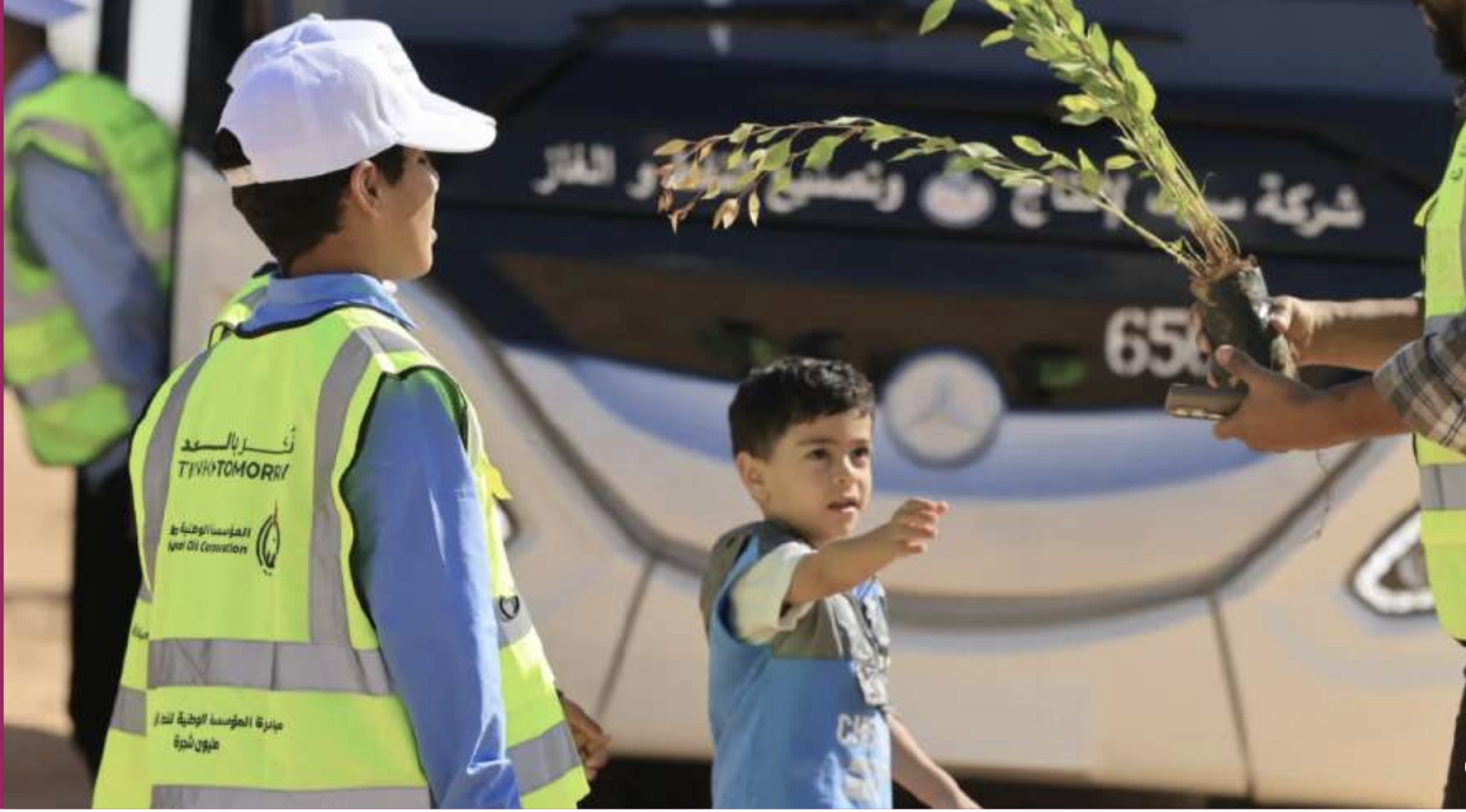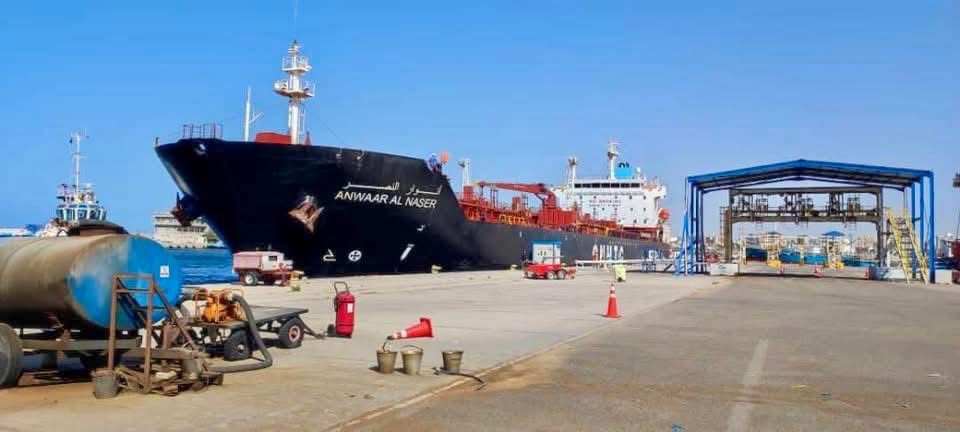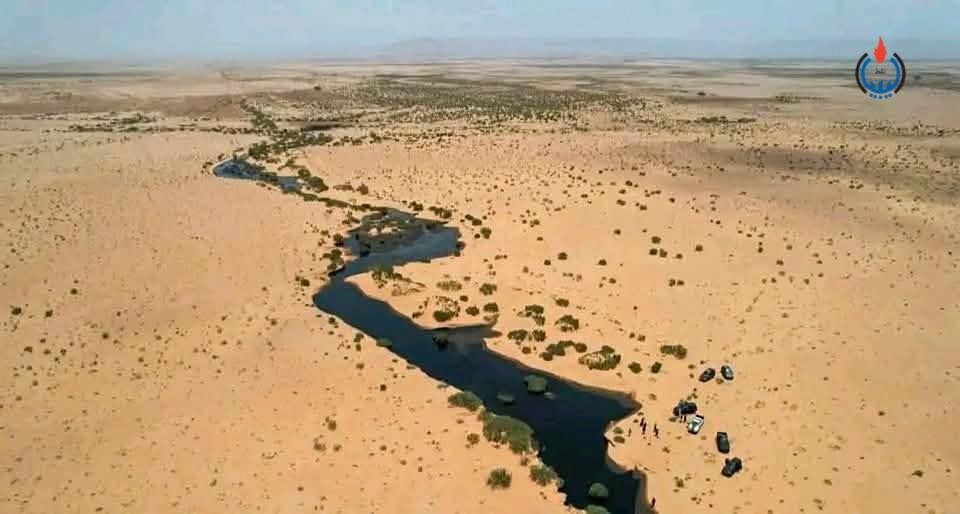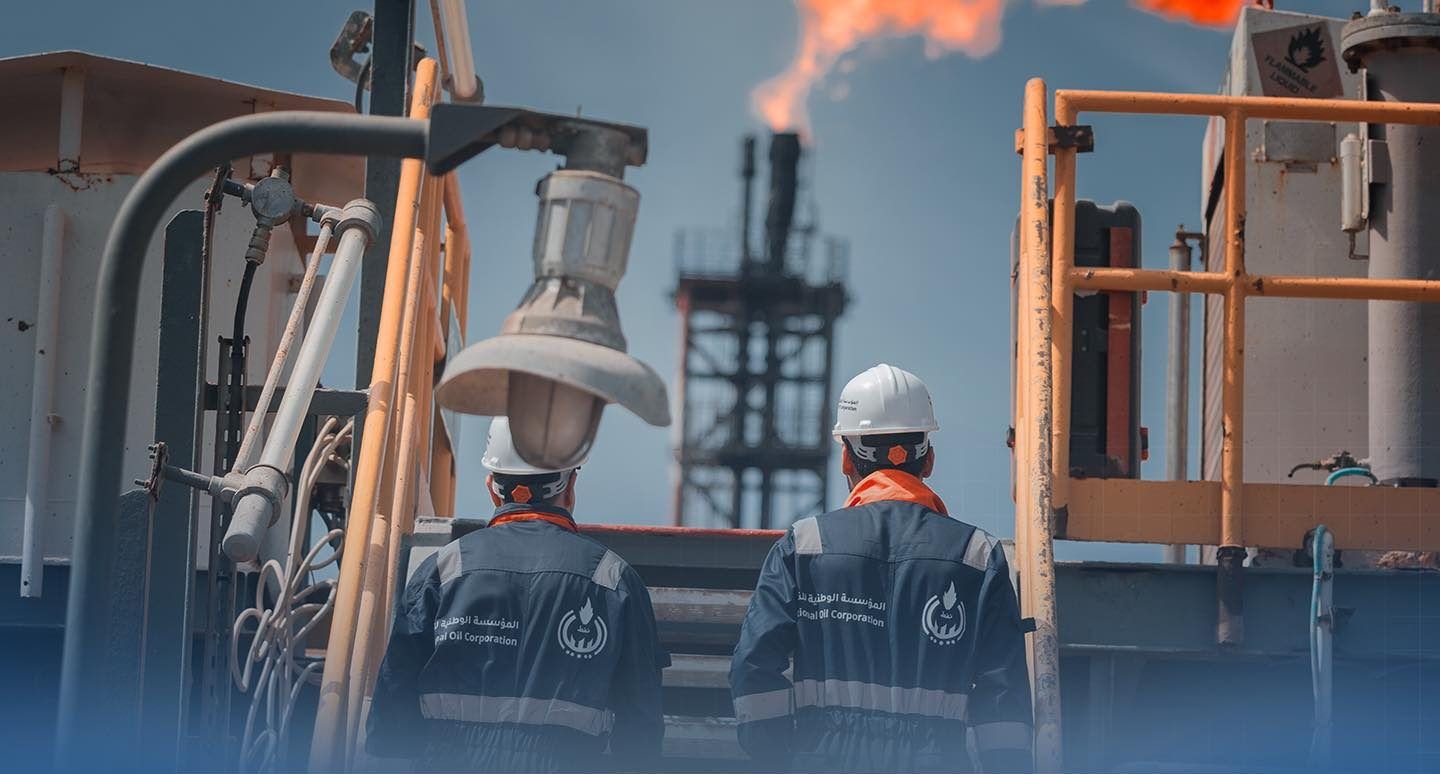
One Thursday morning in early November, children from two schools near the oil town of Marsa El Brega were to be seen joining staff from Sirte Oil in planting saplings in the sandy scrub land nearby.
Occasional tree-planting by schoolchildren is not completely unknown in Libya nor anywhere else in the country for that matter. But it is not something usually associated with oil and gas companies, other than perhaps some landscaping around main offices or at field camps. It has certainly not been case in Libya which, apart from the relatively fertile areas in the north west and north east, is almost entirely desert.
This was not always the case, as the prehistoric rock paintings of giraffes, elephants and the many other now disappeared animals in the Akakus mountains of southern Libya demonstrate.
Stopping desertification in the country, rolling back the sands and making the desert bloom again has long been an unfulfilled vision of successive Libyan governments.
Given the dominant economic role that the oil and gas industry plays in Libya, it has already been accepted that the sector has a social role in production areas, such as bringing in medical specialists for mass consultations or providing medical equipment, even taking over the funding and running of a local hospital, as has been the case in Obari. Indeed, even before the 2011 revolution, foreign oil companies operating in Libya were expected to allocate funds for the development of local areas such as the establishment of schools or clinics, or the paving of roads.
But in view of the growing debate worldwide about the environment, sustainable development and the use of hydrocarbons, it was perhaps just a matter of time before the industry in Libya as a whole accepted that it collectively has a significant role to play in protecting and improving the country’s environment.
It is now doing so. Almost every oil company currently has a sustainable development programme, largely at the behest of the NOC and its chairman, Fathi Bengdara. At the United Nations Climate Change Conference (COP28) in Dubai in December 2023, he unveiled the plan to plant a million trees as part of the NOC’s ‘Thinking for Tomorrow’ programme, aimed at creating an environmentally better Libya.
Turning that vision into a reality started in February this year with the NOC’s first phase, the planting of young trees in a wide spread of locations including at Al-Assa, near the Tunisian border, at Aziziya, and at Jufra in the centre.
The campaign was also being extended to Al- Shgega, to Kufra in the far south east and to Ghat in the far south west. The plan is that by the end of 2025, under the supervision of the NOC’s Sustainable Development Department headed by Hamed Abdul Salam, saplings will be planted by the various oil companies in 40 locations across the country. The aim is to create forests, with the trees being chosen for their suitability to each area’s particular environment.
Over the summer, Abdul Salam visited a number of oil companies and oilfields to assess their plans and potential planting sites ahead of the second phase of the project.
There were talks with Mellitah and TotalEnergies about their support, including the supply of the saplings. In mid-October, the NOC announced that it had installed an irrigation system for a 100-hectare forest site in the Wahat area and that work was beginning on a second 100-hectare site in the region. It added that tree planting would also take place elsewhere in the Oil Crescent as well as in Ubari, Bint Beya, Tragan and Sebha in the south and near both Beida and Benghazi in the east.
The tree-planting in the Marsa Al-Brega area, undertaken with the support of Sirte Oil, formally launched the second phase, but it was just the first of a number of similar events.
Locally, the plan is to extend the tree-planting. Future plans include expanding the campaign to nearby locations such as Al-Aqila and Bishr.
At almost the same time that schoolchildren were helping plant trees in Marsa Al-Brega under the watchful gaze of the NOC’s sustainability director, AGOCO was organising the planting of 35,000 saplings in a 60-hectare site in the Nafoura field, near its airport.
Some oil companies are still assessing their contribution to the tree-planting plans. The ultimate aim is to absorb three million tons of carbon emissions, but that will require significantly more than a million extra trees. In any event, it is not just oil companies involving themselves in the tree-planting. In May, the Tripoli General Services Company received the first batch of saplings for bedding out.
Oilinvest has also pledged to support the Tripoli project. In its case it is looking to “green” 1,450 hectares. Initially, it involves installing an irrigation system on 450 hectares for the saplings.
However, the NOC’s ‘Thinking for Tomorrow’ programme is about far more than just tree planting. The other 1,000 hectares that Oilinvest intends to support will be used for agriculture, and the entire NOC programme is being coordinated with the ministry of agriculture and livestock resources and its affiliated organisations and well as with civil society groups and municipalities.
The NOC project, according to officials, is about the energy industry’s commitment, not only to reduce desertification and promote awareness of the importance of afforestation, but also to addressing climate change and improving air quality.
Certainly, the associated project in Tripoli is expected to have a profound positive impact on the capital’s environment. By increasing green spaces and absorbing carbon dioxide, it will help improve the quality of the air in the capital, mitigate climate change and create a more sustainable and liveable city for its residents.



